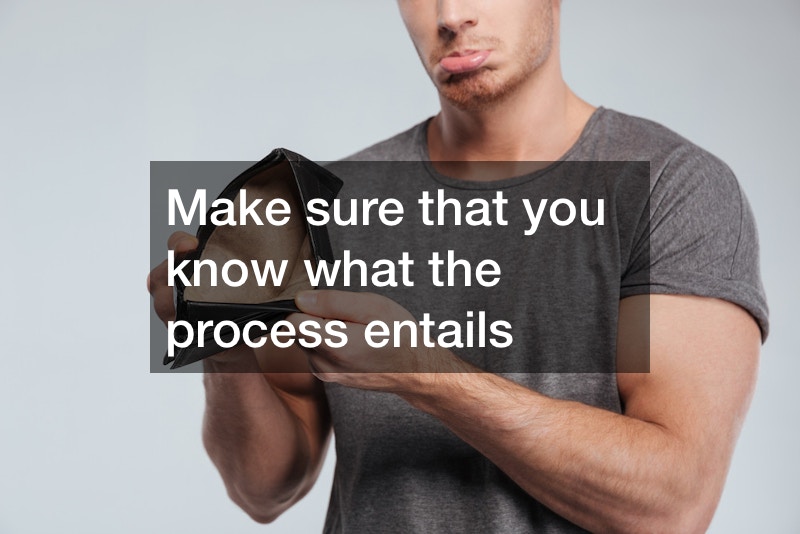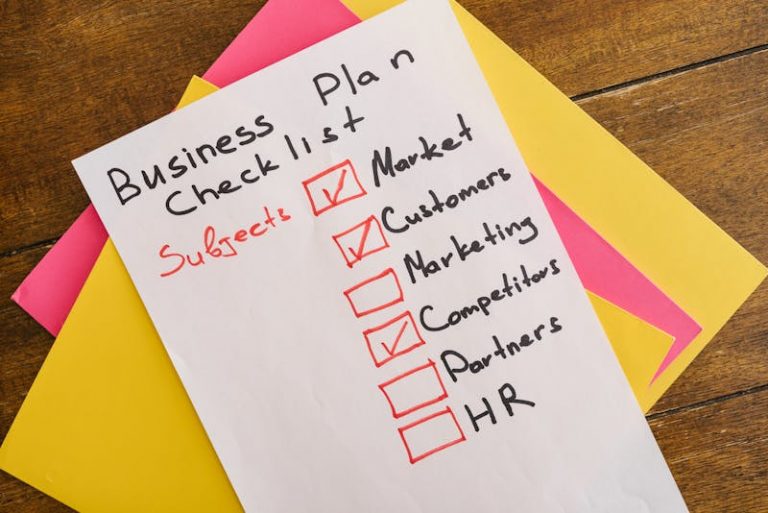

Are you facing financial difficulties and considering filing for bankruptcy at 20? You might be wondering about bankruptcy services and the intricacies involved. One important aspect of this process is your financial state, and a bankruptcy budget worksheet can be a helpful tool. It allows you to organize your income, expenses, and debts, providing a clear picture of your financial situation.
Now, one question that might arise is, “Can you file bankruptcy if you haven’t filed taxes?” The short answer is yes, you can still file for bankruptcy even if you haven’t filed your taxes. However, it’s essential to rectify this situation as soon as possible. Unfiled taxes can complicate your bankruptcy case significantly if not addressed.

Another important question that gets asked is ‘Should I tell creditors I am filing bankruptcy? It’s generally a good idea to communicate your intentions with your creditors. While it may not prevent bankruptcy, it can help manage expectations and avoid unnecessary collection actions. Open and honest communication with your creditors can lead to more manageable arrangements during this process.

If you’re contemplating filing for bankruptcy at a young age, make sure to use the skills and experience of your local legal team. Remember, professional bankruptcy services are available to guide you through this challenging financial journey. Make the call today to find the help you need!
Everyone in the world is struggling with debt right now, and you may find yourself struggling with your small business. Therefore, you have to think about filing for bankruptcy, and it would be better to get a chapter 13 bankruptcy attorney. You should also take certain matters into account regarding this process and follow these tips so everything will go smoothly to settle your debt.

First, there’s no shame in filling out a bankruptcy budget worksheet. Bankruptcy is being in legal terms unable to pay debts, which happens to many business people worldwide. The economy and your choice of product play a role in the success of a small venture. It’s a risk, meaning that you’ll always have to consider the possibility of failure. However, it’s not the end of the road.
The idea is to get help in order to pay your debts in a more accessible manner, so you can move on with your life. A Chapter 13 bankruptcy forum can help you understand some things that may remain unclear about hiring a lawyer or going through this process, like is moving out of state during Chapter 13 legal? Once you’re ready, you can follow these tips, so let’s find out more.

As the owner of a small business, bankruptcy may be a term that you dread the thought of. Regardless of this, it’s sometimes necessary for you to file for bankruptcy, in which case you need to gather as much information as possible. You also need to get professional help so that you go about it in the right way. This is something you can get from visiting bankruptcy firms in your area or searching for some online.
This way, you can find a bankruptcy discharge letter sample and learn a lot of important details about the process. If you want to get information online, you can do searches with phrases like “do you have to go to court for bankruptcies?” and “can you file bankruptcy on property taxes?” These searches will answer your questions and also show you some firms that you can approach for help if you don’t know any.
Once you have a professional on your side, you can ask them things like what self employed bankruptcy is and a lot more. Make sure that you know what the process entails so that you can better plan for it. This way, you may get the best outcome from the entire process.
Business sometimes doesn’t go your way, even if you have a fantastic idea. Therefore, you’ll have to file for bankruptcy and work out your debt negotiation in order to pay back what you owe. It’s not ideal, and no one ever wants it to happen. However, bankruptcy is a very real possibility when you become an entrepreneur, and you must be prepared just in case.
Whether you just want to find out some tips or if you’re currently in the process of filing for bankruptcy, you should understand how a chapter 13 bankruptcy budget worksheet is supposed to be used. Your bankruptcy worksheet needs to be filled out properly and honestly so you can have a successful filing and receive the help you desperately require.
You should also know about bankruptcy disposition, where you might be exempt from certain payments depending on various factors. Meanwhile, you might be wondering what happens when someone owes me money filed chapter 13. You shouldn’t worry because the debtor needs to adhere to a payment plan. However, some claims are more important than others, so it could take a while, especially if you have an unsecured claim.
Let’s find out more tips on how to file for bankruptcy.
Many small business owners who want to file for bankruptcy wonder if it will help them continue their business. While doing so can play a significant role in business continuation, it depends on the formation of their companies, whether they plan to continue operating the business, and the assets and debt they have.
Businesses and individuals can file for chapter 7 bankruptcy. Still, a small business owner can rely on chapter 7 to declare bankruptcy without a lawyer. Personal and business debt for sole proprietors is resolved under chapter 7 bankruptcy.
While filing for Chapter 7 bankruptcy doesn’t clear the debtor in bankruptcy case, some business owners file for individual bankruptcy after their business close down. This enables them to wipe out their liability to pay a business debt or a personal guarantee.
While individuals can file for chapter 13 bankruptcy, business organizations like LLCs, corporations, or partnerships cannot. However, sole proprietors can have an attorney check bankruptcy filings and help them organize their business and personal debts. The attorney can also help them understand the drawbacks of filing bankruptcy and recommend other alternatives to help them keep their companies afloat.
Filing bankruptcy is scary and very stressful. There are enormous amounts of videos and tips out there on how to file for bankruptcy. Before you decide to make the move to file you will want to be sure that this is the right decision to make. Rest assured below are some tips on how and when it is time for you to start filing bankruptcy for a small business.
Is your business small
First, you will want to ask yourself if you have a small business. The size of the company matters when filing bankruptcy for a small business. If you are unsure if you have a small business, below are some guidelines of what a small business is.
Your business may be small if you:
- Privately owned
- A small number of employees compared to a large corporation
- Generate less revenue than a large corporation
Check with your state regulations to make sure that your business is in fact a small business depending on your income, employees, and the status of who owns the business.
Industries vary in the number of employees they have. Whether you buy the goods you sell or manufacture goods, the number of employees you have will contribute to the classification if you are a small business.
Know what bankruptcy is

Bankruptcy is a very difficult decision to make. If you are a first-time business owner some people may think that bankruptcy will help their business in the long run. Others May think it is a type of pause button or a loan.
To guide you, bankruptcy:
- Helps you eliminate debt.
- Guides you in paying the debt.
- Creates a plan for you.
- Helps stop foreclosure on your home or business.
Filing for bankruptcy is not necessarily a bad thing to do. This can help you get out of a tight money situation. Bankruptcy allows you to take charge of your finances and your business when things get a little tough.
Reasons to file
If you have the answer to whether or not you are a small business the next step is to see why you are filing bankruptcy for a small business. Around half of businesses last beyond five years as noted by the Small Business Association. You starting a business is a great accomplishment in itself. Entrepreneurs are individuals who hustle and know the highs and the lows of operating a business. You have worked hard, you have invested, and you hit the ground running. Years for individuals to see positive revenue in exchange for the finances, they put towards the business.
Having multiple business transactions can influence the success of any. Sometimes companies Thrive while other times, some companies tend to struggle. Every company faces some sort of struggle and their years of running the business.
Sometimes when a business struggles it is very difficult to get back up to balance out on finances. If you find yourself in this situation, you are not alone.
Below are some reasons to not file for bankruptcy:
- You do not have a lot of debt.
- You have not considered all possible solutions.
- Balancing out financially is possible.
- Finances are not all accounted for.
- You have money coming on the way.
- Money may not be the issue.
- You may not have considered all the possibilities.
There is some good news! If you have not thought about the issue much, think it over. You will not want to rush into filing bankruptcy for a small business.
Sometimes it is better to get a second opinion. Seeking advice from a business lawyer could be beneficial. He or she can guide you in the right direction on what decision to make.
Here are some reasons to file bankruptcy:
- One or more owners are terminally ill.
- Unable to take out extra loans.
- Community or global market conditions.
Although this list is not exhaustive, be sure to consult in your business partner. Seek advice from a lawyer or a trusted confidant. Ask yourself if you want to continue your business and if you can. There is almost always another chance at coming back from the ground up.

Types of Bankruptcy
When someone is filing bankruptcy for a small business, there are different types. There are two different kinds of bankruptcy one can file. Each has its own advantages depending on your situation. Let us discuss the first type.
Chapter 7 bankruptcy
In this type of bankruptcy, the court takes over. They take charge of your assets and attempt to pay off the debt with them. Once your assets are sold, the court will eliminate the remaining balance of the debt you owe if they wish to do so.
As with any court, there are fees one has to pay. Investing in a chapter 7 attorney could be useful to you. They will keep track of what is taken, what you have, and any court actions that take place. This is important because the court can go after your:
- house
- cars
- appliances and more
Although your assets are taken, there is a potential benefit to filing bankruptcy for a small business under this chapter. Once the debt is paid, the court can rid of the remaining debt if they wish to do so. This gives you an opportunity to have a fresh start. They take charge and you work with them in collaboration to take the next step in paying your debt. Then, you can move forward to your next life and or business goals.
Chapter 13 bankruptcy
The court is involved in this type of bankruptcy just as they are in chapter 7. However, they take on a different role. In chapter 7 bankruptcy, the court is the leader so to speak. They are the teacher and you are the student.
In chapter 13 bankruptcy the court is almost like a tour guide. They guide you and give you a road map to pay off your debt.
With this type of bankruptcy you will hire a bankruptcy attorney. The attorney, court, and you will work together to create this road map on how to pay off your debt. One positive aspect of this chapter, is the courts do not go after your assets initially.
The other positive aspect of this chapter, is you get to be a part of the plan. Your attorney will guide you along with the court. The plan is usually spanned out over a number of years. Some people have a three-year plan. Others have a five-year plan.
A student loan is a good example to use in understanding chapter 13 bankruptcy. Student loan payments can be deferred for various reasons. However, usually after 6 months of graduating, money is owed. The amount of money is divided into payment plans. Each payment plan tends to vary based on your situation. You know how much each month you set aside to pay the loan with this payment plan.
As with student loans, your attorney, the court, and you will create a specified amount you owe each month. The court does keep tabs on when and how much you pay.
Individuals may prefer this chapter over chapter 7. Keep in mind, that with chapter 13 bankruptcy, it will also stay on your credit report just as chapter 7 does. The length in time is usually shorter with chapter 13 in comparison to chapter 7.
Which chapter to file under
If you are curious as to which chapter you can file under, be sure to know if you have filed under either one within the past few years. Hiring a personal bankruptcy lawyer can assist you in knowing which chapter to file under.
Before filing bankruptcy for a small business, know what you can do in terms of possibly saving your business.

Saving the business
If you are leaning towards not filing bankruptcy for a small business, then there is hope. Maybe you have enough funds to carry you through to the next year. Recessions can contribute to business success. Let us say your community or state is coming out of a recession. The markets are booming. Some proactive things you can do to generate more money are:
- Invest in digital marketing.
- Get your business noticed.
- Maintain a detailed budget.
- Learn new skills.
- Create bundled offers.
- Make social media your platform.
These are just a few ideas on how to bring more revenue into your business. Today, many individuals are making more money by promoting their business online. There are a dozen social media platforms to use. If you have a small business, this could be useful to draw in new customers.
Thinking about filing bankruptcy for a small business can be diverted. If you need to scale back on some employee costs, flyers, signs, or anything that is physical, have no fear. Social media can be done with small to almost no fees. Interns can be hired without pay for them to gain experience, and for you to gain another helping hand.
If your small business does not have a website, think about looking at some web design companies. These companies can be costly, but the results may be worth it. This is where having a detailed budget comes in handy. If you know where to scale back on some expenses, you can use those for a professional web designer.
Web designers are a great resource to use. This is not the end all be all. If you cannot afford a website designer, you can create a website for a monthly cost depending on the website platform you use. Learning how to create a website does take time, but is well worth it, and can save you money while growing your business.
These are some tips to save your business if you think you have a chance at doing so. Do not give up on yourself, even if it comes to filing for bankruptcy.

How to move forward
Bankruptcy may be necessary for your small business. That is okay. If you went through the process and filed for bankruptcy, there is still hope for the future.
Sometimes individuals have to go through something to learn for the next time they are put in a similar situation. This goes without saying that if you file bankruptcy once, it does not mean it will happen again.
When you have gone through the process of filing bankruptcy for a small business, you will know what to change and do for the next business venture you have. You can be proactive and do things such as:
- Have a file designated to finances.
- Hire a business or financial coach.
- Keep track of the money you spend on a business.
- Monitor the revenue you generate.
- Create a plan to pay the remaining loans you have.
These proactive steps not only teach you lessons in a business mindset. They also teach you lessons that translate into your personal life. Nobody wants to go through bankruptcy. Sometimes what one does not want to go through, one can learn a lot from.
Face the music
When deciding when to file or if you should file is a big load to carry. Try not to go through this alone. Have a support system, even if it is your lawyer.
If you decide that it is time to file for bankruptcy, do so as soon as you can. This is not something you will want to wait on. If you wait to file, this could only make matters more difficult for you in the long run. You will want at least a day to think about the decision before pulling the plug. However, if you know it in your gut that you need to file, take courage, and be brave.
Facing something difficult can be scary. It can make us doubt ourselves. It can also discourage us. Once we face, we go through it, and we come out better than before. Even if you are in the learning process of how to manage a business, you had to take the first step in starting a business.
Be easy on yourself. More people have been through this process than you may realize. Some of the biggest entrepreneurs in the world had to start over again. Remember, filing bankruptcy for a small business is difficult. Although it is difficult, you can and will be able to succeed again in the near future.







